Boost Your ACT Score Achieve 1400+ with Expert Tutoring
Personalized 1:1 SAT prep that improves your score, builds test strategy, and maximizes your performance on test day.
What is the ACT?
The ACT is a college admissions exam evaluating English, Math, Reading, Science Reasoning, and optional Writing. A strong ACT score improves university admission chances and scholarship opportunities worldwide.
Who Our ACT Prep Is For:
Students aiming for 30+ ACT score
Test-retakers seeking significant score improvement
Learners balancing school with ACT preparation
International students targeting US university admissions
Students needing strategy-focused coaching
Real Students. Real Results





Why ACT Tutoring Works
A smarter way to prepare for the ACT—focused, personalized, proven
Personalized Study Plans
Every student gets a roadmap tailored to their strengths and goals.
Live 1:1 & Small Groups
Learn in focused sessions that keep you engaged and accountable.
T – Tailored Learning
Every student gets a roadmap tailored to their strengths and goals.
Live 1:1 & Small Groups
Learn in focused sessions that keep you engaged and accountable.
Real Exam Strategies
Master timing, shortcuts, and scoring insights that top achievers use.
Progress Tracking
Regular feedback and analytics ensure you stay on the path to your target score.
Real Exam Strategies
Master timing, shortcuts, and scoring insights that top achievers use.
Progress Tracking
Regular feedback and analytics ensure you stay on the path to your target score.
WE ARE HERE TO HELP YOU TO EXCEL IN YOUR EXAMS AND GET YOUR DREAM UNIVERSITY!
BOOK YOUR FREE DEMO SESSION NOW!
Why Our Approach Works
A smarter way to prepare for the ACT—focused, personalized, proven
Score Boost
Increase your ACT score in as little as 8 weeks.
Section Mastery
Conquer tricky areas like Math, and Science.
Confidence Growth
Walk into test day calm, prepared, and ready.
College Advantage
Stand out in competitive admissions with a stronger.

How We Teach ACT
A structured process designed for real results.
01
Diagnostic Assessment
We start with a detailed diagnostic test to identify your strengths, weak areas, and learning style, so your study plan is built on data, not guesswork.
02
Personalized Study Plan
Based on your assessment, we create a customized study schedule, focusing on the subjects and topics that matter most for your IB success.
03
Personalized Study Plan
Based on your assessment, we create a customized study schedule, focusing on the subjects and topics that matter most for your IB success.
04
Diagnostic Assessment
We start with a detailed diagnostic test to identify your strengths, weak areas, and learning style, so your study plan is built on data, not guesswork.
Why Online Tuition For ACT Test Prep?
Targeted Section Practice
- Focused prep for English, Math, Reading, and Science, plus the optional Essay.
Science Without Memorization
- Master graphs, experiments, and data analysis (no extra science knowledge needed).
Realistic Mock Tests
- Full-length ACT simulations so test day feels familiar, not frightening.
Time-Management Mastery
- Practice pacing so every section gets the attention it deserves.
24/7 Support with TYCHR Chatbot
- Stuck on a math problem at midnight or confused about a reading passage? Our always-on chatbot and support team are there to help you anytime, anywhere.
Personalized Learning
- Every student gets a study plan tailored to their strengths and weaknesses, ensuring focused preparation that maximizes results.
Always Available
- Our tutors are accessible across time zones, ready to provide guidance, clear doubts, and keep students on track whenever they need support.
Flexible Scheduling
- We fit into the student’s routine, not the other way around. Sessions can be arranged around school, activities, or personal commitments with ease.
Test Methodology!
T – Tailored Learning
We begin with diagnostic assessments to create a personalized study plan, ensuring every student focuses on the areas that matter most.
E – Explanatory Videos
Our tutors use clear, step-by-step video explanations to break down tricky questions and concepts, making even the hardest topics easy to understand.
S – Strengthening Concepts
Through guided practice and targeted drills, students build a solid foundation in English, Math, Reading, and Science reasoning.
T – Time-Bound Test Series
Regular, timed full-length tests replicate the real ACT exam environment, helping students sharpen speed, accuracy, and confidence under pressure.
Real Students. Real Results
From average to outstanding — see how IB students improved their scores with Tychr’s proven guidance.

Rahul
IB Diploma
From 4 to 7 in Science
The tutors explained concepts so clearly, and the practice sessions boosted my confidence. I went from average to top of the class!


Batches - 2025
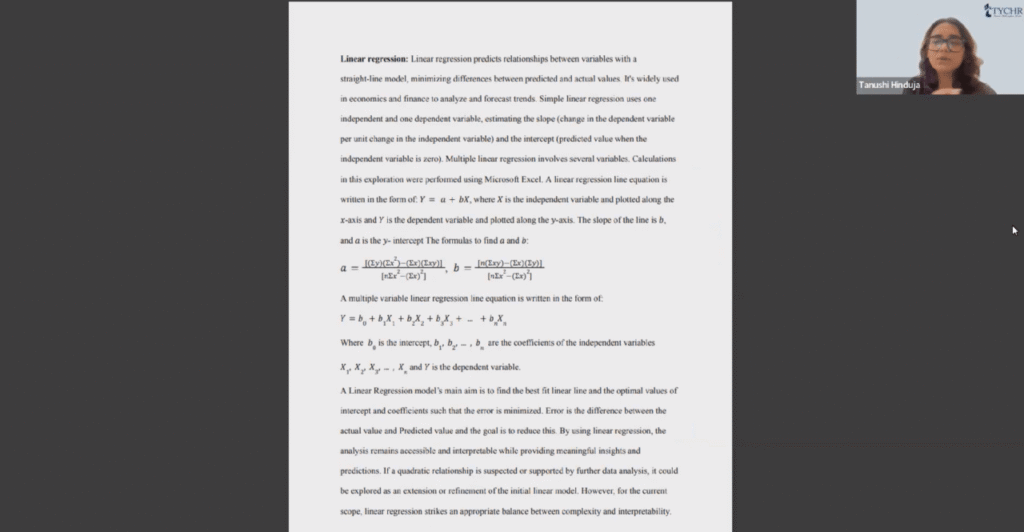
40+/50+ Points Achiever Batch
- Guidance From Expert IB Examiners
- Tips And Tricks From IB Alumni
- Focused Sessions on Past Papers
- Full Length IB Style Test Series
- IB Certified Tutors Cat-1 Cat-2 Cat-3
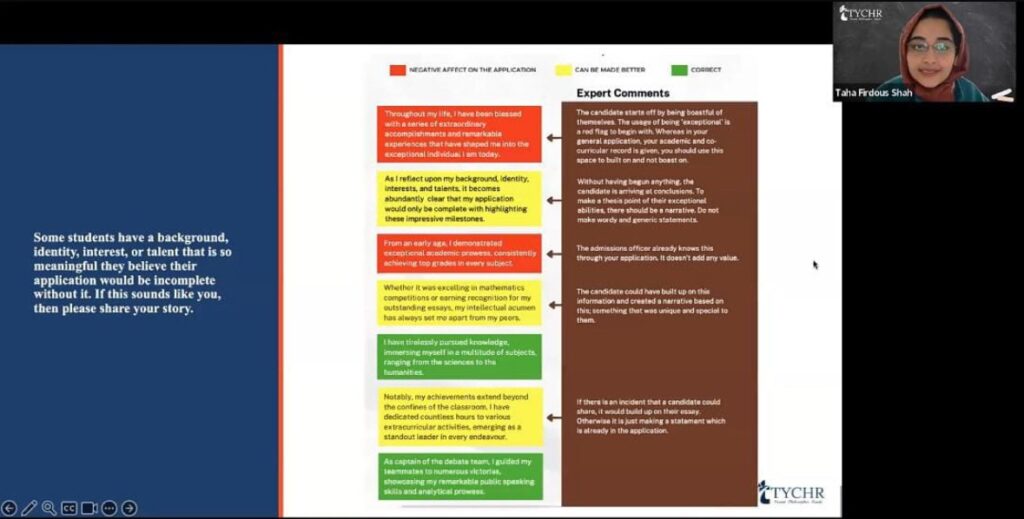
University Readiness Batch
- IB Tutoring for Targeted Grades
- Tailored Support for SAT, ACT, AP
- Profile Building by Experts
- College Essay Guidance Program
- IB Certified Tutors Cat-1 Cat-2 Cat-3
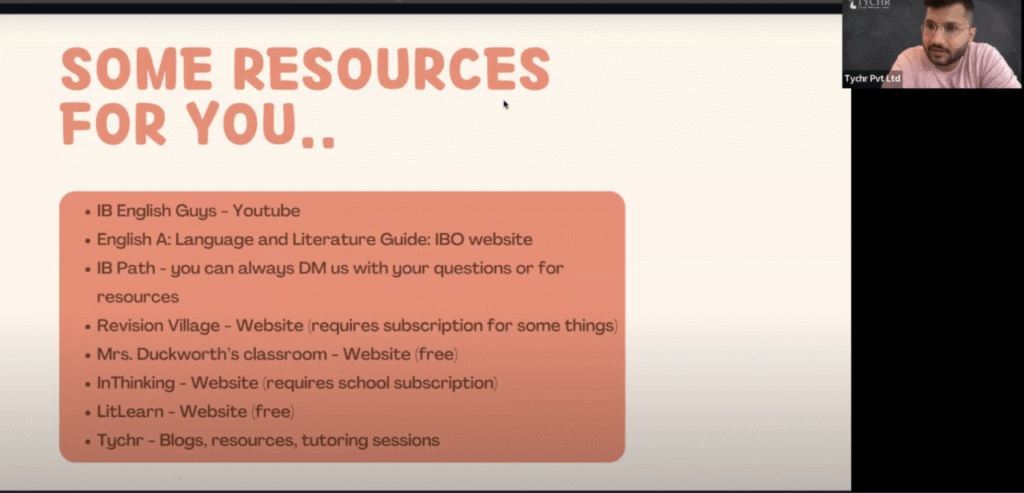
Subject Targeted IB Tutoring
- 2+ Point Increase in Subject Score
- Conceptual Clarity By IB Facilitators
- Topic-Wise Revision Assignments
- Regular Assessments & Evaluation
- IB Certified Tutors Cat-1 Cat-2 Cat-3
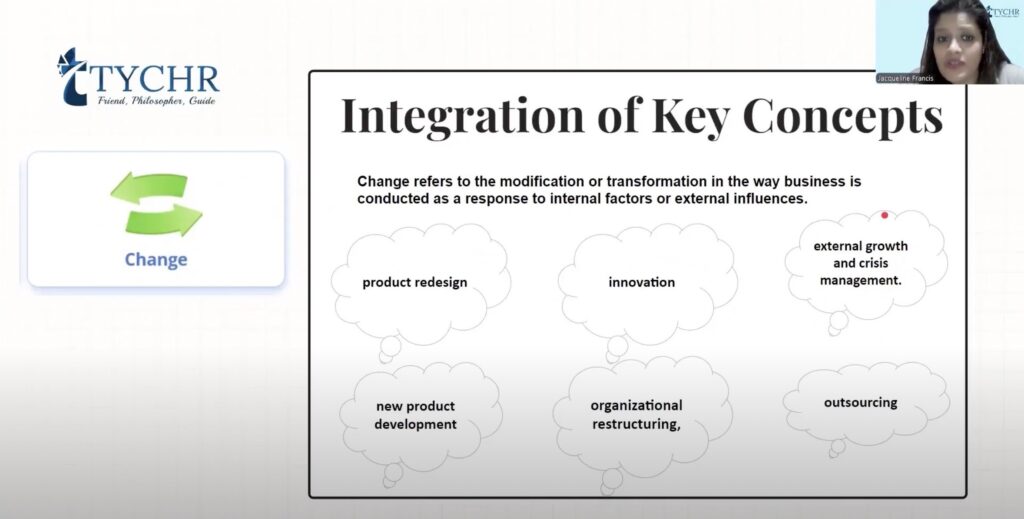
Personalised IB Tutoring
- Boost IB Score by 8+ Points
- Personalized Topic-Wise Plans
- Intensive Doubt Clearing Sessions
- Exam Simulations for Confidence
- IB Certified Tutors Cat-1 Cat-2 Cat-3
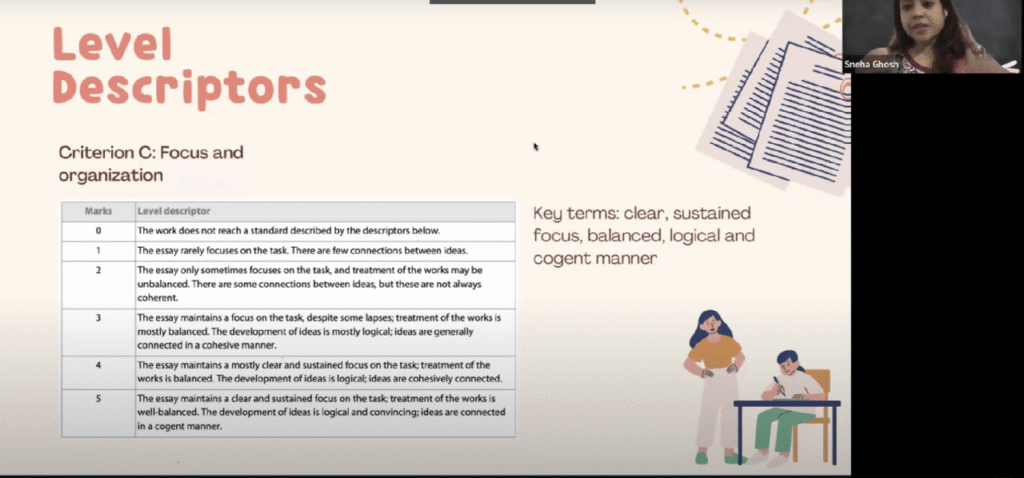
Hyper Personalised IB Tutoring
- 24X7 IB Tutor & Alumni Assistance
- Real-Time Feedback & Support
- Flexible Scheduling
- Topic Tests & Progress Tracking
- IB Certified Tutors Cat-1 Cat-2 Cat-3
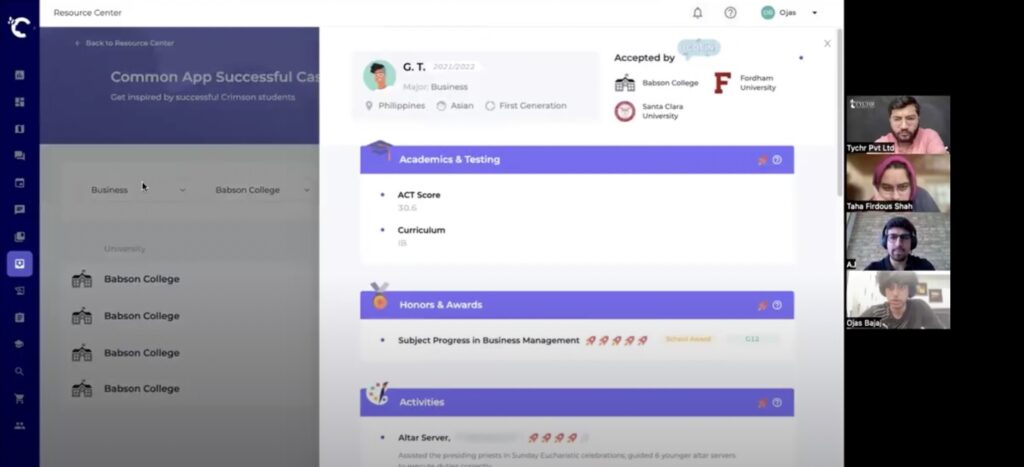
Beyond Academic Program
- Skill Training for College Profiles
- Internships & Service Opportunities
- Courses Ranging From Finance to AI
- Mentorship by Startup Founders
- IB Certified Tutors Cat-1 Cat-2 Cat-3
Why Choose Us
ACT prep that’s tailored, flexible, and proven
01
Expert Tutors
02
Flexible Scheduling
Online sessions designed to fit around your school and activities. Choose time slots that work for you, with easy rescheduling and weekend availability.
03
Personalized Feedback
Ongoing progress tracking and actionable insights for faster improvement. Detailed performance reports highlight strengths, weaknesses, and exact areas to focus on next.
04
Proven Results
Students consistently achieve higher scores and secure top college admits. Our data-driven approach has helped students improve scores and gain admission to their target colleges.
Frequently Asked Questions
What makes our platform different from other learning solutions?
Our platform combines expert-led instruction, personalized study plans, and real exam strategies tailored specifically for ACT preparation. Unlike generic courses, we focus on targeted improvement, continuous feedback, and measurable score growth.
How do I get started with my learning journey?
Getting started is simple. You can book a free demo session, where we assess your current level, understand your goals, and recommend a customized study plan designed to help you reach your target ACT score.
What kind of support do you provide to learners?
Students receive ongoing academic support through live 1:1 or small group sessions, personalized feedback after practice tests, and guidance on exam strategies. Our tutors are always available to clarify doubts and help students stay on track.
Do I get support for all types of reading passages across all sections of the ACT?
Yes. We provide guided practice and strategy support for all ACT reading passage types, including prose fiction, social science, humanities, and natural science passages. Students learn how to approach each passage type effectively.
Can I access the content on mobile devices?
Yes. Our platform is fully responsive and works seamlessly across desktops, tablets, and mobile devices, allowing you to learn anytime, anywhere.
How do you ensure the quality of your educational content?
All our content is created and reviewed by ACT-certified educators and subject matter experts. Practice materials are regularly updated to reflect the latest ACT exam patterns and difficulty levels.
Start Your ACT Journey Today – Claim Your Free Trial Session!

